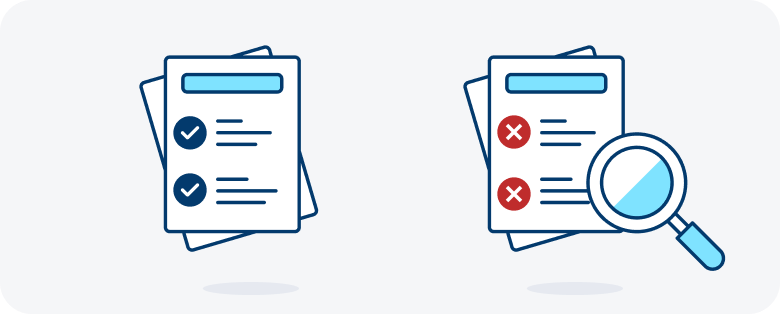Breaking a lease in South Carolina can have serious legal and financial implications for tenants and landlords alike. Knowing when and how to end a lease legally gives you the tools to avoid potentially negative consequences.
In this article, you’ll learn more about the fundamental aspects of lease-breaking in South Carolina, including legal justifications, tenant and landlord rights, consequences, and practical solutions.
Keep reading to gain a thorough understanding of your options and responsibilities.
Review Your Lease Before All Else
Before taking any steps toward breaking a lease early in South Carolina, you should first carefully review your lease. This document defines all your obligations and restrictions, so understanding it fully is a must.
Please remember that the terms and implications of breaking month-to-month leases differ from those of fixed-term leases. The early termination of fixed-term leases often carries more significant penalties.
Legal Reasons for Breaking a Lease in South Carolina
In South Carolina and other states, certain situations allow tenants (and sometimes landlords) to legally break a lease without fear of financial or legal repercussions.
Below are the three legally justified reasons South Carolina tenants have to break a lease.
Military Deployment
Under the Servicemembers Civil Relief Act, tenants called to active military duty are legally permitted to break a lease but must provide written notice and a copy of their orders to the landlord.
Unsafe Rental Unit
If your landlord fails to maintain a safe and habitable living environment, they effectively evict you under the law, freeing you from further rent obligations.
That said, South Carolina law (SC Code of Laws §27-40-630 and §27-40-640) outlines specific steps you must follow before moving out due to significant repair issues. These issues must be serious — like the sustained lack of heating or other essential services.
Landlord Harassment
South Carolina law requires landlords to provide at least 24 hours’ notice before entering a rental unit (SC Code of Laws §27-40-530).
If your landlord repeatedly infringes on your privacy or engages in actions like removing windows or doors, shutting off utilities, or changing the locks, this could constitute what’s called “constructive eviction.” In such cases, you may break the lease without being obligated to pay additional rent.
Despite ongoing efforts to pass legislation in South Carolina that would allow domestic violence to be considered a justifiable reason for early lease termination, such initiatives have not yet succeeded. Similarly, breaking a lease early due to job relocation or for medical reasons is not legally justifiable.
Breaking a Lease Without Legal Justification
When a tenant does not have legal justification for breaking a lease as narrowly defined by the law and summarized above, they’ll most likely face financial penalties.
Here are a few strategies tenants might consider to minimize the cost of breaking a lease early in South Carolina without legal justification:
- Negotiate: Explain your situation and ask if your landlord will allow an early termination agreement.
- Find a subletter: Some landlords may agree to a sublet if the new tenant is qualified and approved.
- Offer settlement: Propose a cash-for-keys payment to the landlord in exchange for early lease termination.
Consequences of Tenants Breaking a Lease in South Carolina
When breaking a lease without a valid legal reason, tenants may face potential consequences, which include the following:
- Paying remaining rent: Tenants may be required to pay the remaining rent for the lease term.
- Loss of security deposit: The landlord may retain the security deposit to cover potential losses.
- Damage to credit score: Failure to meet lease obligations can negatively impact your credit.
- Possible legal action: Landlords may sue tenants for unpaid rent or breach of contract.
Landlord/Tenant Rights and Responsibilities
According to South Carolina landlord-tenant law, landlords and tenants have certain rights and responsibilities regarding breaking a lease, as outlined below.
Landlords Have the Right to:
- Collect rent: Landlords can expect payment as defined by the lease until its termination.
- Retain security deposit: If the tenant breaches the lease, the landlord may pocket the deposit to mitigate losses.
- Seek damages: Landlords may pursue legal action to recover losses from unpaid rent or needed repairs.
- Limited access: With proper notice, landlords may enter for inspections, maintenance, and property showings.
Landlords are Responsible for:
- Maintaining a safe property: South Carolina law requires landlords to keep the property habitable for tenants.
- Attempting to re-rent the unit: Should tenants terminate a lease early, landlords must make reasonable efforts to re-rent the unit.
- Following privacy protocols: Landlords must respect tenant privacy, adhering to the required notice period.
- Returning the security deposit: Landlords must return the deposit or provide an itemized deduction list (if applicable).
Tenants Have the Right to:
- Safe and habitable living conditions: Tenants should expect a livable unit and prompt remedies to repair requests that directly affect habitability.
- Privacy in their rental: Tenants are entitled to quiet enjoyment of their property and reasonable notice before landlord entry.
- Terminate in cases of habitability or safety violations: Tenants can break the lease if the property is unfit for habitation.
- Protection against retaliation: Tenants are protected from landlord retaliation for exercising their rights, such as reporting code violations or requesting repairs.
Tenants are Responsible for:
- Paying rent promptly: Rent must be paid in full and on time according to the lease terms.
- Maintaining the rental: Tenants should keep the unit in good and sanitary condition and report any issues that arise.
- Providing proper termination notice: Tenants must provide adequate notice when terminating a month-to-month lease.
- Following lease terms: Tenants must honor their lease’s terms through the end of the agreement.
Legal Help for Landlords and Tenants
If you’re facing a broken lease situation, professional advice can clarify your rights and minimize potential consequences. Consider these resources:
- South Carolina Legal Services: Provides free legal assistance to eligible South Carolinians
- NOLO: Offers multiple guides on state-specific landlord-tenant laws, including how to break a lease in South Carolina without penalty
- South Carolina Bar Lawyer Referral Service: Connects individuals with lawyers in their area
Avoid Lease Breaking with TurboTenant
TurboTenant’s easy-to-use property management software helps landlords avoid tenants who might consider breaking a lease in South Carolina by offering a suite of helpful features, including:
- In-depth Tenant Screening: Screen applicants for financial and rental history to avoid future issues.
- Legally Binding Lease Agreement Templates: Create legally binding agreements that cover all essential terms.
- Rent Collection Automation: Automate rent collection and minimize missed payments.
- Maintenance Tracking: Log repair requests to ensure prompt property upkeep.
Sign up for a free TurboTenant account and simplify your life as a landlord.
Disclaimer: TurboTenant does not provide legal advice. This material has been prepared for informational purposes only. All users are advised to check all applicable local, state, and federal laws and consult legal counsel should questions arise.
Breaking a Lease in South Carolina FAQs
How much notice does a landlord have to give if not renewing a lease in South Carolina?
If they don’t plan to renew, landlords must give 30 days’ notice for month-to-month leases.
How late can you be on rent in South Carolina?
While there is no legally defined grace period, landlords must submit a written demand for unpaid rent, giving tenants 5 days to pay.
Will breaking a lease hurt my credit?
Yes, breaking a lease early in South Carolina can negatively impact your credit if the landlord reports unpaid rent or takes legal action.
What is the penalty for breaking a lease in South Carolina?
Penalties may include payment for the remainder of rent under the lease terms, loss of the security deposit, and potential legal fees.


